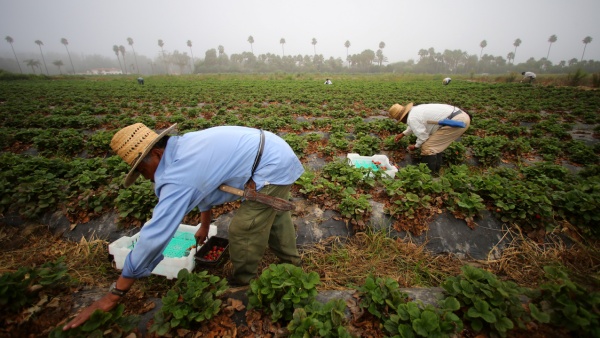A Canadian employer involved in the Seasonal Agricultural Workers Program (SAWP) is accused of using racial slurs to intimidate workers, including telling Jamaican employees to “go back to the trees where you come from.” This is just one of several documented human rights abuses highlighted in an Amnesty International report released yesterday. The research, which involved 44 migrant workers from 14 countries between February 2023 and June 2024, revealed widespread exploitation and poor conditions within the Temporary Foreign Workers Program (TFWP), a program that annually brings thousands of Jamaican workers to Canada. The report exposed multiple cases of unsafe working environments and other serious human rights violations.
In 2022, the Jamaican government sent a fact-finding team to assess the conditions within the Seasonal Agricultural Workers Program (SAWP), part of the broader Temporary Foreign Workers Program (TFWP). Over the course of two weeks, the team visited 70 farms and conducted random sampling to evaluate conditions. The resulting report found that most Jamaican workers were generally satisfied with their living and working environments.
However, one Jamaican worker who participated in the SAWP shared troubling evidence with Amnesty International, including photos of filthy, stained toilets, food cabinets infested with cockroaches, and sticky traps filled with dead insects. Other workers reported being denied breaks, forced to work without days off, and having limited access to adequate food, water, or sanitation facilities.
One worker shared a disturbing account of how his Jamaican colleague was publicly humiliated by their employer after attempting to take a scheduled break. Despite the employer repeatedly shortening their break times, the worker was sprayed with a water hose when he tried to rest, soaking him and causing significant mental distress. Another worker recounted being exposed to unknown chemicals without proper safety equipment, leading to serious illness.
The Amnesty International report condemned Canada’s Temporary Foreign Workers Program (TFWP), stating that the country’s migration policies are designed in a way that inherently increases the risk of exploitation and abuse for racialized workers, violating international human rights obligations.
The report specifically pointed to the TFWP’s tied visa system, which ties workers’ visas to a single employer. This system places workers in a vulnerable position, as their immigration status and work conditions are under the control of one employer. Although Canadian regulations are meant to provide migrant workers with rights and protections equal to those of Canadian workers, those on tied visas often find themselves unable to access these rights due to their dependence on a single employer.
The report emphasized how tied visas make migrant workers heavily reliant on their employers for basic rights, such as access to fair working conditions, housing, healthcare, and social security. Many workers live in employer-provided accommodation, meaning that if they are dismissed, they could be left homeless. They also depend on their employer to secure health insurance and transportation to medical care. Additionally, these workers rely on their employer to maintain legal status in Canada and access social benefits.
The report further revealed that many workers face the risk of having their contracts terminated and being quickly repatriated if they fall ill, suffer an injury, or develop an occupational disease, as they are often deemed “unfit” for the job. Raising complaints about working conditions or abuse can lead to contract termination, loss of legal status, and, in many cases, forced departure from Canada.














